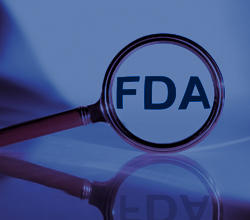
Lyophilization: What you Need to Know, Validation and Regulatory Approaches
 John R Godshalk
John R Godshalk
 60 Min
60 Min
Product Id: 704845
In this webinar, attendees will learn how lyophilization cycles are developed, how lyophilizers work and how they are controlled and what is important to FDA and other regulatory bodies in the inspection of lyophilizers and in the validation process.

Navigating Standard 1.2.7 - The Regulation of Nutrition and Health Claims in Australia/NZ
 Janine Curll
Janine Curll
 90 Min
90 Min
Product Id: 704692
This training program will discuss what is a NCC (Nutrition Content Claims), a GLHC (General Level Health Claims), a HLHC (High Level Health Claims), and the conditions for making these claims. Attendees will understand the conditions on the types of foods that can carry nutrition content and health claims and the process to self–substantiate a food health relationship and requirements for FSANZ notification.

5 Steps to Creating a Rock-Solid Recall Plan
 Valerie Scheidt
Valerie Scheidt
 60 Min
60 Min
Product Id: 704720
This training session is designed for food safety practitioners who are preparing for implementation of the Preventive Controls rule, and require assistance in effectively developing a recall plan. Those who have an existing product recall and crisis management program understand that identification of the issue is only the first step in controlling the problem. Operations which have formally relied upon the standards as set forth by certification bodies may wish to reconsider their approach based upon the finalization of the PC Rule.

Performing an Effective Risk Assessment of Potential Breaches
 Frank Ruelas
Frank Ruelas
 60 Min
60 Min
Product Id: 704682
The Health Insurance Portability and Accountability Act (HIPAA) rules and regulations clearly state that an impermissible use or disclosure is presumed to be a breach. Therefore, any such incident triggers the required notifications. However, if an organization performs a risk assessment and shows why the incident is not a breach, the required notifications would no longer apply. This training program will focus on how to perform an effective risk assessment that can not only reduce the administrative burden of dealing with presumed breaches, but also help an organization meet other criteria such as those that exist in the Office for Civil Rights HIPAA audit protocol.

Global Considerations for Supplements and Nutritional Products
 James Russell
James Russell
 90 Min
90 Min
Product Id: 704666
This training program will discuss global considerations for supplements and nutritional products as well as the country/region specific considerations for them. It will also elaborate healthcare authorities’ outlook, global expansion challenges, product classification, and marketing challenges in the industry.

Good Laboratory Practices for Food Manufacturing
 Melinda Allen
Melinda Allen
 90 Min
90 Min
Product Id: 702539
This 90-minute webinar will show how you can apply FDA's Good Laboratory Practices in a food quality laboratory setting. It will review differences, highlight specific needs of a food lab and provide guidelines for implementation.

Don't Fear the Fork: 7 Strategies for Effective Allergen Control
 Valerie Scheidt
Valerie Scheidt
 60 Min
60 Min
Product Id: 704637
This training program is designed for food safety practitioners who are preparing for implementation of the Preventive Controls Rule, and require assistance in effectively managing allergens. Those who have an existing allergen control program realize that though a plan is in place, compliance and ongoing monitoring is essential for success. Operations which have formally relied upon the standards as set forth by certification bodies may wish to reconsider their approach based upon the finalization of the PC Rule.

2 Ways to Look at Vulnerability Assessments - Part 1 and Part 2
 Ned Mitenius
Ned Mitenius
 60 Min
60 Min
Product Id: 704471
This training program is designed for food defense and food safety practitioners who are preparing for implementation of the Intentional Adulteration rule. Those who have existing Food Defense Plans should understand how the vulnerability assessment requirements may go beyond most existing food defense plans and what considerations will be needed to comply with the rule. Operations which have relied on the FDA supplied Food Defense Plan Builder software tool should know the limitations of the existing tool, and how to overcome them, and who is qualified to do so.

Creating FDA-compliant cGMP Training Program
 Henry Urbach
Henry Urbach
 60 Min
60 Min
Product Id: 703401
This webinar will explain how to implement an effective and FDA compliant GMP training program. It will discuss regulatory requirements and expectations for a well-trained workforce.

Food Defense - Is your organization safe?
 Jason Teliszczak
Jason Teliszczak
 60 Min
60 Min
Product Id: 703271
This food defense webinar will detail what an organization needs to have in place in order to safely manufacture, package, and or handle food products. It will cover a broad range of production types, facilities, and the transportation of goods. This webinar will highlight key areas of the organization that need to be controlled to ensure that intentional contaminants do not enter the product by potential threats.

Monitoring for the FSMA Proposed Rule on Intentional Contamination
 Ned Mitenius
Ned Mitenius
 60 Min
60 Min
Product Id: 704451
The program will discuss the practical development of an adequate monitoring program optimized to fit the Intentional Adulteration Rule. Attendees will learn the difference between monitoring, verification and validation. The program will review the existing Food Defense Plan Builder tool including its limitations and some possible changes. In the absence of a provided tool, the program participants will be shown how to create an effective monitoring program, and the documentation required to support it.

Emerging Issues in Food Safety - Locally, Nationally and Globally
 Michael Brodsky
Michael Brodsky
 60 Min
60 Min
Product Id: 704518
This training program will focus on understanding and accepting our respective responsibilities to help ensure that our food supply is safe by pursuing a food safety culture locally, nationally and globally.

Microbiological Risk: Do I Really Need to Test Raw Materials for Microorganisms
 Henry Urbach
Henry Urbach
 60 Min
60 Min
Product Id: 702635
This webinar will cover the regulatory perspective in testing raw materials for microorganisms and how you can manage the risk of raw materials being the major source of microbial contamination in your medical product manufacturing process.

Understanding TSCA Reform: What is Being Proposed and How Will it Affect your Business?
 Erik Janus
Erik Janus
 60 Min
60 Min
Product Id: 704076
The presentation will describe the recently proposed major revisions to the law (Toxic Substance Control Act, TSCA) that regulates the use of industrial chemicals the United States - the first time this has happened in the 40 years since the bill was drafted in 1976. A critical review of the recently proposed bills in the House and Senate will be provided, including an overview of the background and history of this legislative effort, an overview of the proposed changes and effects of implementation on the regulated community.

Maintaining Food Safety and Customer Satisfaction through effective Specification Development and Implementation
 Angeline Benjamin
Angeline Benjamin
 60 Min
60 Min
Product Id: 701561
Product Specifications are customer’s greatest tool for ensuring products received meet the quality and safety standards expected. This webinar will cover the strategies followed by examples on how to develop an effective product specification that would help managing food safety and customer satisfaction.

Pest Control Program for Food Processing Facilities
 Betty Zakeri
Betty Zakeri
 60 Min
60 Min
Product Id: 704041
This training program will illustrate the role and responsibilities of an efficient well-rounded pest control manager. It will highlight various types of pest control programs and discuss mandatory records to be maintained for compliance.

Regulation of Polymers and Paper Used in Food Packaging
 Jeffrey Scott Eberhard
Jeffrey Scott Eberhard
 60 Min
60 Min
Product Id: 703546
This webinar on the regulation of common materials used in food packaging will feature relevant elements of 21 CFR as well as USFDA guidance documents pertaining to the subject matter. It will help attendees understand the process and plan for packaging regulation as an integral part of product development efforts.

Improving Sanitation Standard Operating Procedures In the Food Industry
 Angeline Benjamin
Angeline Benjamin
 60 Min
60 Min
Product Id: 701642
In this Food Safety training learn how to create and implement a sanitation SOP to avoid failure of the HACCP system.

Nutraceuticals/Dietary Supplements: FDA Regulatory Submission and Manufacturing Quality Requirements
 Gretchen Bowker
Gretchen Bowker
 60 Min
60 Min
Product Id: 702741
This dietary supplements quality compliance training will review the FDA regulatory requirements for manufacturing and commercialization of dietary supplements. You will gain a complete understanding of FDA requirements for manufacturing of nutraceuticals, food drugs, and dietary supplements.

Global and FDA Regulation of Electronic Cigarettes
 Azim Chowdhury
Azim Chowdhury
 60 Min
60 Min
Product Id: 703849
The global regulatory environment for tobacco, e-cigarette and e-liquid products is rapidly evolving as legislators and regulators in the United States, European Union and Asia attempt to understand the health and safety concerns presented by these novel products, and develop appropriately tailored laws and regulations. This training course will present an overview of e-cigarette regulations in Asia, the European Union and around the world. It will also detail the key provisions of FDA’s deeming regulations.


























